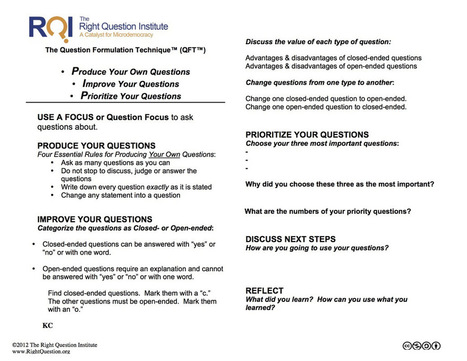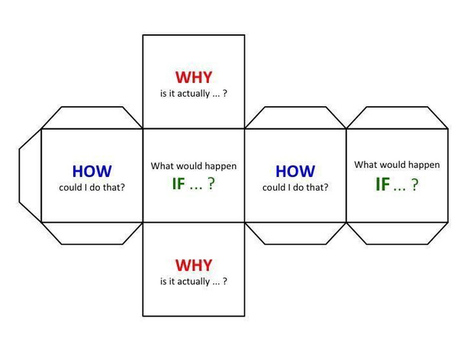"Questions can be extraordinary learning tools.
A good question can open minds, shift paradigms, and force the uncomfortable but transformational cognitive dissonance that can help create thinkers. In education, we tend to value a student’s ability to answer our questions. But what might be more important is their ability to ask their own great questions–and more critically, their willingness to do so."



 Your new post is loading...
Your new post is loading...










Great starting point.
SOME TIMES KNOWING THE RIGHT QUESTION TO ASK WILL GET THE RIGHT ANSWER FOR THE PROBLEM YOU ARE TRYING TO SOLVE!! IF YOU DON'T KNOW WHAT TO ASK YOU MAY NOT GET THE RIGHT ANSWER FOR YEARS BUT THE ANSWER TO THE QUESTION THAT WAS ASKED!?!